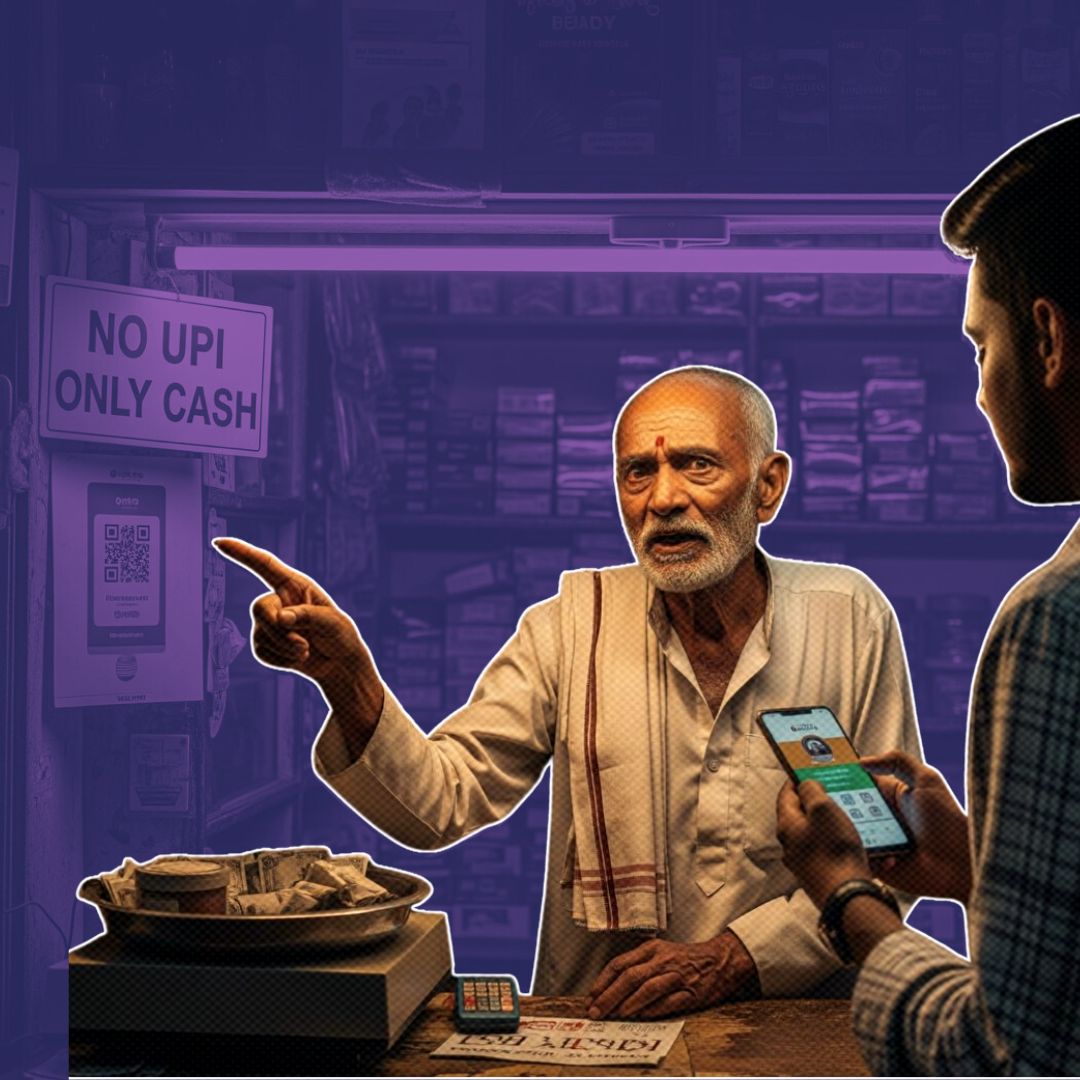Bengaluru, once a pioneer in digital payments, is experiencing a reversal as thousands of small vendors reject UPI transactions, preferring cash instead, due to mounting GST tax notices based on digital payment data.
Around 14,000 traders with unregistered businesses have been identified by the Karnataka Commercial Taxes Department for digitally receiving payments exceeding GST turnover thresholds of ₹40 lakh (goods) or ₹20 lakh (services) from 2021-22 onwards.
Vendors, fearing heavy tax demands, harassment, and even eviction, have removed QR codes and asked customers to pay in cash only. Authorities stress that notices target only those crossing turnover limits and urge traders to respond and regularise their tax status.
Vendors Abandon Digital Payments Amid Tax Scrutiny
In Bengaluru’s local markets, the familiar sight of QR codes has given way to printed or handwritten signs declaring “No UPI, only cash.”
Many small vendors street food sellers, tea stalls, and corner shops report that despite daily turnovers around ₹3,000, the volume of digital payments recorded has triggered GST notices demanding payments sometimes reaching lakhs of rupees.
Shankar, a shopkeeper from Horamavu, said, “I cannot accept UPI payments anymore. The tax notices and the fear of harassment have forced me to switch back to cash.”
Advocate Vinay K Sreenivasa, joint secretary of the Federation of Bengaluru Street Vendors Associations, highlighted widespread anxiety over potential harassment and municipal evictions linked to GST compliance, pushing vendors away from digital modes.
The Karnataka Commercial Tax Department confirmed that only those whose UPI transaction turnover crossed legal GST thresholds received notices and must register and declare appropriate taxes.
Digital Payment Data Spurs Tax Enforcement
The increased scrutiny stems from UPI transaction data analyzed between FY 2021-22 and 2024-25, which revealed around 14,000 traders in Bengaluru surpassed the ₹40 lakh or ₹20 lakh turnover limits without registering for GST. Among these, 5,500 have already been issued notices.
Officials warned some traders registered digital receipts exceeding ₹2 crore or ₹80 lakh through a single PAN, attracting further investigation. The department emphasised that not all receipts may be taxable, advising traders to respond promptly with evidence, classifications, and clarifications.
To ease burdens, eligible traders can register under the GST Composition Scheme, which offers simplified tax payment at reduced rates.
Experts, including HD Arun Kumar, former additional commissioner of commercial taxes, stressed that tax authorities must substantiate claims before demanding payments, underscoring the need for due process.
The Logical Indian’s Perspective
Bengaluru’s digital payments revolution has been a critical step toward financial inclusion, convenience, and transparency. However, the current backlash by small vendors demonstrates the delicate balance required between technological progress and sensitive policy enforcement.
The visible retreat back to cash signals gaps in communication and support that can alienate vulnerable traders while impeding India’s formalisation goals. The Logical Indian advocates for compassionate, transparent dialogue and accessible compliance pathways that empower small businesses rather than intimidate them.
Such an approach can foster coexistence between innovation and tradition, ensuring that digital progress uplifts all strata of society. How can policymakers, authorities, and communities build trust and facilitate seamless transition to fair taxation without forcing vendors into the shadows of cash?











